#|☽| edward ( architect )
Text
☆ @verthandiwalking / starter call.
A tin mug bobbed down the river and caught against a low-hanging branch near the shore. The current tugged at it, intent on carrying it along.
“Excuse me?” A call, hesitant. Edward stood in the river farther down, thoroughly drenched. Some of his belongings sat in a sodden heap on the shore beside his bag. The rest had either sunk to the riverbed or drifted away, though he was trying his best to grab them. He gave the stranger a shaky smile. “Sorry to bother. Um- would you mind tossing that to me?”
#verthandiwalking#|☽| edward ( architect )#|☆| ic#(!! hello! thanks for liking the starter call!)#(feel free to let me know if u want something different!)
9 notes
·
View notes
Text
rests my hands lightly on the table. trade offer: u give edward tea and a place to stay for a while, and he unfolds new hallways and rooms in your home.
#|☆| ooc#(listen i just agdgd)#(he’s an architect!!)#(and a wanderer and aaa)#(he needs to rest but he loves using his magic!)#(and his architecture is rlly pretty!)#|☆| wishlist#|☽| edward ( architect )
4 notes
·
View notes
Text
!! hello hello, i’m slowly working on replies today bc i can finally Think, but in the meantime, here are some real-life faceclaims for background characters here (bc i doubt i’ll ever find manga ones for them)! i’m Indecisive and never quite settled on how i picture them, and these aren’t the only ones i associate with these characters, but !!! they’re definitely some main ones and they do feel pretty accurate in most ways, specifically as they appear in the following pictures:
CASTOR FLETCHER — tony h.ale
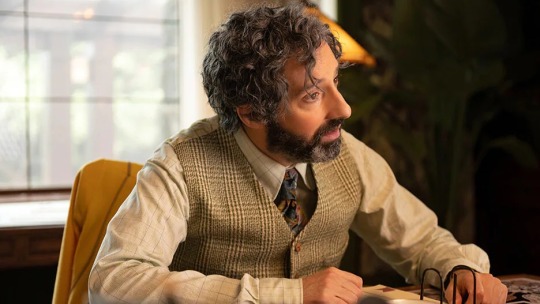
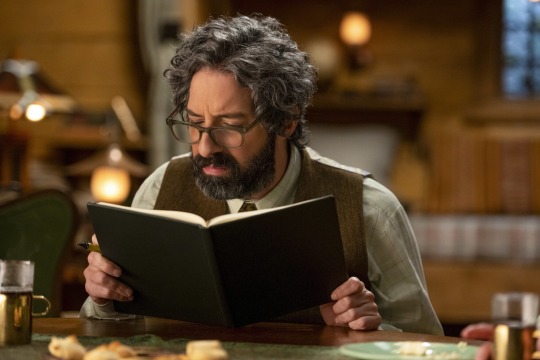
VELANOVA CHAMBERS — l.upita n.yong’o
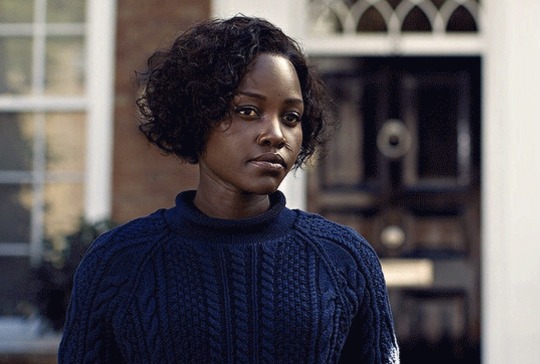

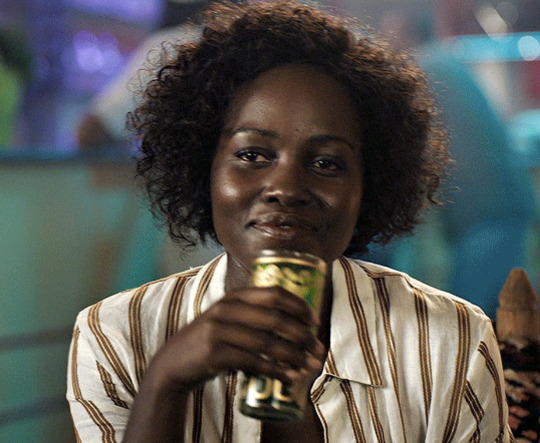
CERISE FONTAINE — sa.mara we.aving (also ni.cole kidman, as she appears in this post!)


EDWARD HUGHES — sh.aun evans
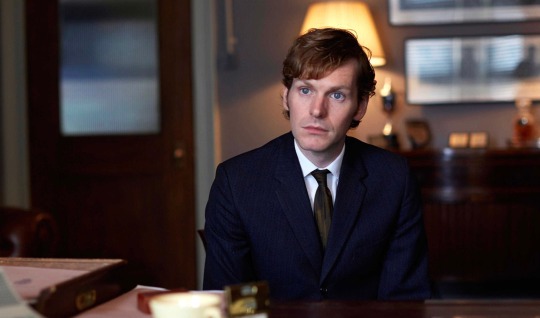
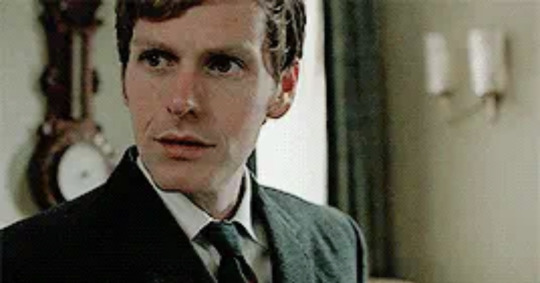
#|☆| headcanons#(i appreciate them your honor!!)#(castor’s appearance in particular is very tricky to pinpoint but…. i think i’m getting there……)#(specifically in these pics and not in others!)#(bc that actor looks Very different in general agsgd)#(i’m pretty certain on vela’s faceclaim tho like !!! them!!!)#(the clothing style fits super well too….)#(and this is one of the faceclaims that reminds me of cerise)#(i rlly associate her with diamonds and champagne so i’m always looking for pics/faceclaims with that Vibe)#(cerise’s hair was originally deep auburn but she dyed it blonde for an acting role and preferred it that way)#(and edward is just. anxious agsgd)#(he’s abt to unfold a dozen new rooms and hallways in a building. it may or may not become a maze <3)#(i’m not super sure on his faceclaim but it does remind me of him!)#(i’ll probably never find real-life faceclaims for the lyles which is very funny to me since they’re the main muses here agsgd)#(it be like that sometimes!!)#|☽| castor ( storyteller )#|☽| vela ( stargazer )#|☽| cerise ( actress )#|☽| edward ( architect )#smoking //#(just in case!)
4 notes
·
View notes
Note
"So---o, what's over there, then?" Maddox asks, popping up onto his toes and craning his neck to get a better look down the hallway. It looks harmless enough. Long. A little barren, maybe, but sturdy. No holes in the floor or visibly rotting wood. No mold.
His fingers drum against his legs. He really wouldn't care if Edward hadn't caught him and stopped him from going on, and now he's just being so vague-
"Oh, hey, what's that?" Maddox points, waits for Edward to look and then- Nyoom he's off and running down the hall. See ya sucker!
It’s too long, this hallway — impossibly long, given the outer size of the building. It stretches on and on, wrenches in a turn, and continues down an even longer hallway ending in an ornate wooden door.
Before Maddox can get anywhere close to this door, however, another door — much plainer — springs up before him from nowhere and blocks his path.
The wall creaks behind Maddox and to his right, and another door — which wasn’t there before — flies open. Edward stumbles out. He presses his hand against the opposite wall to steady himself, then faces Maddox and raises both hands protectively, as though in anticipation the other would lash out.
“You’re— a fast runner,” he stammers, because this comment leapt to his mind first. A faster runner than him, at least. Breathless, he inhales, summoning his nerves, and presses on, trying to sound firm. The shaky desperation in his voice doesn’t help. “But you’ve got to stop, now. Please. It’s— it’s unfinished.”
#scxrytxles#(agdgd thank u for this!!)#(edward is already on the verge of Panicking i’m crying)#(as always no pressure to match length if u want to reply!)#|☆| inbox#|☽| edward ( architect )#|☆| ic
1 note
·
View note
Text
☆ @heartfledged
boxes of autumn decorations lay strewn about the bookshop floor — most half-emptied, their contents already adorning the shop. edward, balanced atop a small ladder and trying to tape a string of pumpkin lights above a window, nearly toppled to the floor when avyra appeared. he gave her a rather helpless look. “i— i just, um… i wanted to surprise him. by finishing the decorations for him before he gets back.” dewey had left that afternoon to visit his family and planned to return the next morning.
the string of lights nearly slipped from edward’s grasp. the tape dispenser, which he’d been holding at the same time, did clatter to the floor. edward exhaled. “sorry, but— if it isn’t too much trouble, do you mind tearing off a few pieces of tape for me?”
#heartfledged#(offers u an absolute mess of a man)#(let me know if u want something different! <3)#|☽| edward ( architect )#|☆| ic
1 note
·
View note
Text
WHAT PART OF THE HAUNTED HOUSE ARE YOU?
EDWARD: the attic
It must be lonely, to haunt a place so infrequently used. You’re overflowing with it, inundated with feeling and yet completely solitary. It’s like you’re entirely forgotten until someone needs a knitting needle, a baseball bat, a spare picture frame. You feel as though this house could exist without you but you could not exist without it — but that’s not true. It could not stand on its own without a head on its shoulders. You can’t bring yourself to believe that, though, so you sit in your loneliness and you make it a home. At least you know the words to this part. At least you can sing along. One day, the people here will move, and you’ll sit stagnant, wanting to climb, but thinking there is nowhere further up to go.
#|☆| tag games#|☽| edward ( architect )#(i also MUST do any quizzes related to architecture for edward SO)#(hmm loneliness and usefulness and stagnation….)#(‘you feel as though this house could exist without you but you could not exist without it’)#(dependency…..)#(many thoughts on this one too)
0 notes
Text
charlie *handshake* olive *handshake* edward when it comes to headaches
#|☆| headcanons#|☽| charlie ( nice rabbit )#|☽| olive ( assistant )#|☽| edward ( architect )#(with charlie it’s synesthesia-related migraines)#(with olive it’s anemia-related)#(and with edward it’s both stress and magic-related)#(other muses on here experience headaches but these three definitely have them the most often)#(a Time……..)#(also i promise i’m trying to focus on replies and starters i owe!)#(i have just been Very Tired lately)
1 note
·
View note
Text
bold what applies to your muse. repost, don’t reblog. feel free to add to the list.
EDWARD —
fire. ice. water. air. earth. claws. fangs. wings. gold. diamonds. grass. leaves. trees. orchids. roses. metal. iron. rust. rain. snow. lace. silk. cotton. velvet. leather. sun. moon. stars. blood. dirt. mud. silver. steel. sugar. salt. lavender. glass. wood. paper. wool. fur. smoke. ash. ocean. bruise. scar. wind. spices. light. dark. paint. ink. charcoal. wine. hard liquor. sweat. dust. bare feet. canine. feline. avian. coffee. tea. books. scratches. petals. thorns. hay. glitter. heat. cold. steam. frost. candle. sword. dagger. staff. arrow. hammer. shield. spikes. sand. roots. feathers. scales. pearls. rubies. sapphires. emeralds. opals. herbs. waves. lightning. sunlight. moonlight. clay. stone. brick. bone. lions. wolves. dragons.
tagged by: @verthandiwalking (thank u!)
tagging: anyone who wants to! feel free to tag me as your tagger so i can see!
0 notes
Text
edward has little interest in large sums of money as payment for his architecture because he wanders so much. buying more belongings would weigh him down and make traveling harder (he isn’t strong at all), hence why he carries mainly necessities in his bag. he cannot buy a permanent house because his magic would eventually make it collapse. buying finer clothing would make him a target for thieves, and carrying around more money would make him worry about thieves regardless of whether he bought nicer clothing. he could buy homes and sell them before they collapsed, but that would require too much socializing and he’d likely break down from stress. this is why he often prefers food and temporary living spaces as payment. he only wants enough money to survive while traveling (to buy enough food, inn rooms, new shoes if his old ones wear out, etc.).
#|☆| headcanons#|☽| edward ( architect )#(idk whether this makes sense bc i slept all day today on accident and my head is very fuzzy but)#(here u go)#(he’s a bit of a mess honestly agdgh)#(he also has some very messy thoughts abt whether he Deserves nicer things but that’s a whole other issue)#(he donates money a lot if he does get paid more)
1 note
·
View note
Text
!! before i go to sleep tho, the theater is doing this bc edward put so much anxiety into the walls when he was messing with the theater’s architecture that when the building senses anxiety in someone else, it sometimes Latches Onto It and things get Weird
#|☆| dash comm#(it’s just agdggd)#(a TIME)#(edward’s magic and anxiety mix in very strange ways)#(and it generally does not go well!!)#(most of edward’s additions to the theater are backstage so there’s a lower chance of something Wild happening to an audience member)#(but it Does happen on rare occasions)#(which can get troublesome)#|☆| headcanons#|☽| edward ( architect )
1 note
·
View note
Text
“I-I wouldn’t go down that hallway.” Edward had revisited the theater on the owners’ request — they wanted him to fix parts of the building that had gotten… unstable over the years. The architect was happy to oblige, though he was less happy to discover the owners had seemingly neglected to tell people to avoid the areas that needed adjustment.
He’d been stretching measuring tape along a wall, but he paused to glance at the other. “It isn’t, um…” a falter, debating which words to use, before settling on, “architecturally sound. At the moment.”
#|☆| open#|☽| edward ( architect )#|☆| ic#(offers u an anxious architect)#(he liked working on the theater so he rlly is happy to visit again!)#(the owners Did tell people he’d be there but it is easy to stumble into the wrong parts of the building…)
0 notes
Text
EDWARD HUGHES, the Architect
BASICS.
Name: Edward Oisín Hughes
Nicknames: Ed, though most people who know him call him Edward or Mr. Hughes
Species: human
Age: 36
Birthday: September 11th (Virgo)
Gender: cis male (he/him)
Birthplace: Cork, Ireland
Residence: no permanent home; wanderer
Occupation: architect (just a peculiar one); briefly owned and managed the Twilight Theater before Vela and Castor became the new owners
Orientation: bisexual
Associations: deep green, brown, mahogany, leather-bound books, scattered blueprints, rulers, pencils, handwritten notes, calligraphy pens, the smell of parchment, twisting vines, mazes and labyrinths, tabby cats, deer, mice, sparrows

APPEARANCE.
Height: 5'10''
Complexion: fair; worry lines on forehead
Eyes: deep hazel, faint shadows beneath his eyes
Hair: tawny brown, short; he tries to keep it well-trimmed and neatly combed, but it’s sometimes a little disheveled from stress and under-sleeping
Build: slim, lanky, not strong in the slightest
Style: tidy, semi-formal (button-up shirts, plain or simple-patterned vests, trousers, suspenders, well-worn/faded coats), nondescript, always wears a tie and has a bit of dark green and brown in his clothing
Edward likes to keep his appearance and clothing neat, but he nearly always looks tired and a bit on edge when socializing. He sometimes appears vaguely ill as well, pallid and dull-eyed.

DEMEANOR.
MBTI: INTP
Alignment: True Neutral
Perpetually anxiety-ridden and anxiety-riddled, tense, restless, reserved, introverted, imaginative, creative, diligent, thoughtful (sometimes gets caught in thought and occasionally talks to himself), analytical, kind (but a bit socially clueless at times), curious, rational, quick-witted, perceptive, skeptical, critical (though he rarely voices this criticism aloud when it comes to judging others), impatient when someone interferes with his work, perfectionistic, scattered (with a sense of order known only to him), polite, single-minded when it comes to his work
Edward finds it impossible to sit still. He is always fidgeting with something, whether his sleeves, a pencil, his own fingers, or any other small item within reach. He tries to draw as little attention to himself as possible. If he could, he’d simply unfold buildings in peace on his own, but he must do business with others to support himself. Though reserved, he can light up when someone shows interest in his work (as long as they don’t discourage him from working) and rather enjoys discussing ideas and learning new things with/from people who are patient with him. Soft-spoken with a tendency to trip over his words.

ABILITIES.
☆ ARCHITECTURAL UNFOLDING.
A specific sort of spatial magic. Edward can unfold new hallways and rooms in structures. This unfolding can dramatically increase the inner size of a building while adding no size to the exterior. He usually plans these magic additions with great precision and care in blueprints before unfolding them. Edward ensures electricity and plumbing work properly as well. He can also unfold hallways and rooms that are fully furnished — with wallpaper, furniture, paintings, and other decor — though this requires more planning and energy (and more payment, if someone is employing him). Here’s a short drabble about this!
It is important to note that Edward has an unhealthy relationship with his magic. He depends on it for stress relief, and it has become deeply parasitic. It latches onto structures the moment he gives it a chance to do so. It can slip beyond his control if he isn’t careful. If he doesn’t unfold a building for a while, he becomes restless and even more nervous than usual. Here’s some important info about this. For those who can sense magic, his magic feels like a tangled coil of wire.
To avoid attracting unwanted attention, Edward almost exclusively unfolds buildings for those in the magic community. He sometimes unfolds buildings for himself as personal projects as well. However, he cannot stay in any one building permanently, as his magic would eventually make the structure collapse. This means Edward is a perpetual wanderer. He moves from one building to the next, leaving traces of his magic behind in unfolded rooms and hallways that have a tendency to shift and unfold further on their own.
If he must conceal his work before leaving, he can fold the new hallways back up (though it always pains him to see his work vanish).

DETAILS.
Commonly Found: sketching buildings or blueprints, unfolding a building, studying books on architecture in libraries, visiting structures with designs he admires (like cathedrals, theaters, clock towers, and certain train stations) for inspiration, reading quietly in coffee shops or libraries, seeking a place to stay for a night or so while traveling
Edward is the one who unfolded the back of the Twilight Theater and the back of the Florist’s shop.
He briefly owned the Twilight Theater (known simply as Wetherton Theater at the time) purely because he saw its architectural potential and wanted to unfold the inside. Velanova Chambers and Castor Fletcher would later buy the theater from him and rename it. Before leaving, Edward helped them redesign parts of the building to match the new theme.
His magic carries a faint smell of old books and cinnamon. This scent fades over time.
Edward is a chronic insomniac and often spends long hours planning blueprints at night rather than sleeping. He also has claustrophobia and phasmophobia (an intense fear of ghosts).
Typically, Edward seeks payment for his work in the form of money. Sometimes, though, he just wants tea and perhaps a place to stay for the night.
In the past, he had a few… unfortunate encounters with people who confronted him about the instability of his magic. Edward instinctively relies on his magic to lessen his troubles, and the urge to escape got the better of him. Folding his architecture back up takes less effort than unfolding it. If someone refused to let him carry on with his work — or, worse, threatened to turn him in to authorities in the magic community — all it took was trapping them in the right hallway.
For more reasons than one, Edward was on the run for a while. Despite his anxiety, he was quite sneaky and remarkably skilled at covering his tracks.
It’s been years since his last incident, though. He managed to evade capture until the rumors died down and people stopped looking for him. The experience made him rather jumpy and fearful of blackmail, and he hopes to put his past mistakes behind him rather than ever addressing them again. So far, he’s succeeded (mostly). Nowadays, if he suspects anyone knows about his past, he dodges questions and leaves as soon as possible.
Edward doesn’t want to hurt anyone else. He simply wants people to let him carry on with his business in peace. In the end, his entire identity rests on his work as an architect. He doesn’t know what he’d do with himself if he couldn’t use his magic.
#|☆| headcanons#|☽| edward ( architect )#(!! him!!!!)#(i appreciate him a bunch!)#(anxious but trying agsgd)#(help him honestly……..)#(he’s officially a minor muse now!)
1 note
·
View note
Note
I feel like Ed would like Rose Red
!!! gosh hello i’d never heard of this before but i looked it up and you are 100% correct, it definitely has his vibes!!! he’s an anxious mess and would probably never watch it himself tbh but he would absolutely relate to the story if he learned abt it!!
#anonymous#(i rlly want to watch it now……..)#(i am positive it would terrify me but like agsgd edward vibes!!!)#(thank u for sharing anon!! i always love hearing what people associate with these characters <3)#|☆| inbox#|☽| edward ( architect )#|☆| ooc
0 notes
Text
edward hughes is the architect who “built” the extensive hallways and rooms in the back of the theater and the flower shop. he even created the furniture. his magic is remarkably strong, and his architecture is impressive and beautiful. however, it is inherently risky if he isn’t careful and if he lingers within it too long. his creations may remain stable at first, but they aren’t exactly… architecturally sound.
edward creates his architecture largely to relieve stress. his restless creative energy infuses his magic and pervades the walls. as a result, his creations tend to begin Shifting and Unfolding on a whim at some point. they sometimes form surreal corridors and chambers; even mazes at times. they’re a reflection of his mental state at the time of their creation.
edward’s magic is one of the clearest examples of parasitic magic on this blog. he’s too attached to it. he puts too much of himself into it. the more he uses it on a single work of architecture, the more it drains his energy, and the stronger and more independent it becomes. over time, it almost gains a mind of its own. edward loses the control he once had over it. it ingrains itself inseparably into the building as well.
he cannot live within his creations forever because his magic would eventually make them collapse. he always needs to abandon them at some point, often to his great dismay. he’s quite fond of his creations, and he frequently misses them a great deal, so he sometimes returns to check in on them.
#|☆| headcanons#|☽| edward ( architect )#(!! hello i couldn’t stop thinking abt the previous theater owner)#(the link leads to the drabble i wrote abt him!)#(nathaniel’s magic also became lowkey parasitic toward the End tbh)#(but not nearly to the same extent as edward’s)#(edward doesn’t have the Greatest reputation among many magic-users who have heard of him)#(he tries to escape this by hiding his identity at times)#(but he’s Terrible at lying so it usually doesn’t work out)#(he IS quite talented tho so people still do business with him)#(as long as he explains he won’t stick around too long)#(also like!!!)#(his living places eventually collapse regardless of whether he unfolds anything within them)#(though this takes much longer than it does when he uses his magic on purpose)#(it’s a passive effect)#(his magic Clings to any structure he lives inside)#(so he has to keep traveling and finding new places to live for a while before moving on)#(someday i’ll talk more abt symbiosis and magic in general bc i love thinking abt it)#(magic as something that lives and grows! magic as something connected to its user and environment!)#(magic that can suffer or thrive depending on the Season its user is going through!)#(in this essay i will-)
5 notes
·
View notes
Text
INTERMISSION (edward) — the architect
------
Edward Hughes was not a showman.
Quite the opposite, in fact. He preferred to keep a low profile. He had a quiet, nervous energy. His words caught in his throat and stumbled over each other under too much pressure. His gaze flickered away from attention. The very idea of a spotlight on him sent his heart skipping like a rabbit’s.
So, when he bought the Wetherton Theater — which was on the verge of closing due to poor business — he had no intention of solving its problems.
And yet, the previous owner had handed it over without hesitation. Edward had stammered through an introduction and feigned halfhearted interest in performances. His own acting was dreadful, he knew. He’d never been good at lying. His gaze had stayed fixed on the steam drifting from her mug of tea for most of their conversation. But the woman hadn’t seemed to care. She hadn’t pressed him for details or motivations. She’d seemed eager to be rid of the place. Perhaps she was simply done with it, sick of mediocre shows and weak applause. Perhaps she didn’t mind who owned it as long as it wasn’t her. In any case, Edward wasn’t complaining.
As soon as he paid for the building, he settled all his worldly possessions in his new office. He traveled often and didn’t carry much, so it fit quite nicely. He couldn’t afford to stay anywhere in the town; he’d spent all his money on the theater. This didn’t matter. The theater had more than enough potential.
Evening arrived on his first day as the owner. The curtain closed after the final show, and everyone else left the building. Peace, at last. Without their prying eyes to bother him, Edward breathed a sigh of relief. Now he could explore the true reason he’d bought the place. Now he could begin his true work.
He spread a blueprint over his desk. It detailed the floor plans for the building. His fingers traced the lines he’d studied over and over before buying the theater, each chamber and corridor etched in his memory. He gently unfolded the pieces of paper taped atop the blueprint in certain places. They revealed hand-drawn additions to the architecture, each sketched in impressive detail: new halls joined to the old ones, new rooms, new twists and turns. Perhaps too many. His sketches unfolded enough times to tumble off the sides of the desk. Rustling quietly, they hit the floor and rolled before stopping.
He scanned the paper, his brow creased in focus. He tapped a spot on the original blueprint where a wall aligned with the edge of a sketch. “There,” he whispered. “I’ll start there.” He could always sense the best place to start. As he left his office and walked toward it, it drew him like a magnet.
The spot was a blank wall at the end of a wide hall. A dead end. Undeterred, Edward pressed his hand against the peeling white wallpaper. A tingling feeling spread across his palm, like pins and needles.
“Now,” he murmured. “Let’s see.”
The wall rippled like water. The man pushed slightly. With a drawn-out creak like rusty door hinges, the wall tipped over and fell flat. The hall had gotten longer. And it kept getting longer, unfolding like the paper on the blueprint, splitting along creases to form the same doors and rooms traced in the sketches. It branched into other halls, which also unfolded and split, and so on and so on. A river of dark green rushed over the walls before smoothing out into wallpaper. Tables with flower vases atop them sprang from the floor along the edges of the hall. The building stretched and expanded. The sound of creaking wood and scraping metal echoed through the corridor. Edward had planned out the pipe system as well. The electricity. The furniture.
Everything, really.
It took two minutes for the sounds to settle into silence. Edward exhaled and lowered his hand. A faint lightheadedness washed over him, but it was a pleasant dizziness, bright and sparkling, as bubbly as champagne. He couldn’t help the smile that spread across his face as he gazed down the hall, admiring his own handiwork. The wallpaper and furniture looked just as he’d imagined them. The doors mirrored the precise spacing he’d planned in his mind and sketched onto the paper. It was lovely.
He longed to explore the new halls properly and to ensure his bedroom had arranged itself to his liking, but he wasn’t finished yet. He needed to unfold several more walls to match the other sketches he’d unfolded on the blueprint. Many more twists and turns. Then, it would be a work of architectural art, an embodiment of the potential he’d sensed when he’d first seen the building. Then, he could rest.
And he would puzzle out how to run a theater at some point, he supposed. He wanted to stay in the building and improve his creations for at least a few months before finding another place to unfold. It was an expensive habit, true — and a rather exhausting one at times — but a rewarding one. Joy swept over him to see his sketches take shape. He could shift the building as well, switch the rooms and twist the halls whenever the need arose or inspiration struck. And the exterior of the building never got larger. Only the interior stretched to accommodate his designs.
People often paid him for his work as well, of course. His customers were those who lingered in the right circles to hear about his talent in spatial magic, and who were willing to overlook certain details about his past. He was an architect. Simply a peculiar one. He needed to earn money somehow. But Edward preferred selecting buildings on his own whenever he could. It gave him more creative freedom, and he didn’t have to fumble through socializing as much. Sometimes he offered to work for little payment at all. The satisfaction of having a new project sufficed.
It was one of the only skills that brought him a true sense of confidence. It melted the tension from his shoulders and allowed him to breathe easier. It was like taking the tangle of restlessness and meandering creativity in his mind and pushing it outward into a structure. Transforming it into something beautiful.
Of course, the emotion that gave such vibrance to his designs had an unfortunate side-effect. The walls sometimes unfolded on their own, against his will, quietly and unsteadily, to form mazes when stress overtook him. Hence why he never stayed in one place for long. In the end, it didn’t matter whether he used his magic on purpose in a particular structure. Everything stayed stable for a while, but eventually the walls would only settle if he got far enough away. The building would collapse if he didn’t leave. So, he sought out new buildings. Started somewhere fresh. Left traces of himself behind in walls and floors and labyrinthine halls that defied any semblance of logic.
But for now, he had time. He could enjoy the theater. And there were still dreams to unfurl, so he nudged his worries aside and set out to reach the next wall.
#|☆| stories#|☆| theater#|☽| edward ( architect )#(!!! HELLO I KNOW THIS IS OUT OF THE BLUE BUT)#(i just!!! got a whole bunch of inspiration to write abt the previous theater owner aaaa)#(he’s another background character i got highkey attached to developing)#(i was working on a reply to a question abt the florist)#(and the florist mentioned the person who expanded the back of their shop)#(which was edward! the florist hired him for that one)#(but then my mind got stuck thinking abt edward and hhh)#(so!! yeah!!)#(a very talented architect!!)#(he did Not improve the performances at the theater at all)#(he was simply Not Good at theater stuff)#(even tho he Tried to learn!!)#(by the time vela and castor bought the theater from him things were going Very Poorly in several different ways)#(i appreciate him tho like agsgd he’s rlly out there being an anxious architect)#(he makes me sad when i think abt him too much bc he literally Cannot live in one building for too long)#(but at the same time he’s also just. so funny to me in other ways agsgd)#(someone; talking to him when he was still the owner: so u like theater performances?)#(edward; literally just there bc he thought the building looked pretty and he Needed to make it even prettier: um. definitely yeah)#(edward: my favorite play is *looks at scrawled writing on palm* maclet? hambeth?)#(sir………..)
5 notes
·
View notes